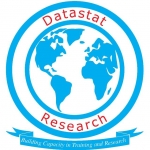|
|
Result Based Monitoring and Evaluation
USD 1,100 |
Venue: Nairobi
Results-Based Monitoring and Evaluation (RBM&E) is a critical framework for assessing the effectiveness, efficiency, and impact of projects and programs. This course is designed to equip professionals with the knowledge and skills to implement RBM&E systems that focus on achieving measurable outcomes. By shifting from traditional activity-based approaches to results-oriented methods, participants will learn to track progress, identify challenges, and make informed decisions to enhance performance and accountability.
With increasing demand for transparency and impact in organizational operations, RBM&E has become an indispensable tool for program managers, policymakers, and stakeholders. This course provides participants with practical tools and methodologies to design, implement, and evaluate projects effectively. It emphasizes aligning monitoring and evaluation processes with organizational goals and the expectations of donors and beneficiaries.
Incorporating RBM&E into your organization ensures data-driven decision-making and enhances accountability to stakeholders. This course focuses on building robust monitoring frameworks, setting performance indicators, and using data analysis to improve program outcomes. Participants will gain hands-on experience with real-world case studies, ensuring they leave with actionable insights.
This training is ideal for professionals across sectors, including government, NGOs, and private organizations. By mastering RBM&E, you will contribute to building a culture of continuous improvement and results-oriented thinking within your organization.
Course Duration: 5 Days
Course Objectives
- Understand the principles and components of results-based monitoring and evaluation.
- Develop logical frameworks (logframes) for project design and implementation.
- Learn to set measurable goals, objectives, and performance indicators.
- Master data collection and analysis techniques for effective monitoring.
- Use evaluation tools to assess program outcomes and impact.
- Gain skills in writing comprehensive M&E reports.
- Understand stakeholder engagement in the M&E process.
- Learn to integrate RBM&E into organizational decision-making.
- Enhance skills in designing M&E plans for diverse projects.
- Apply concepts through real-world case studies and scenarios.
Organizational Benefits
- Enhanced project accountability and transparency.
- Improved program efficiency through data-driven insights.
- Better alignment of activities with organizational goals.
- Increased stakeholder confidence in project outcomes.
- Streamlined reporting processes for donor and partner compliance.
- Strengthened capacity for evidence-based decision-making.
- Improved resource allocation and utilization.
- Development of a results-oriented organizational culture.
- Reduced risk of project failures through proactive monitoring.
- Greater impact and sustainability of projects and programs.
Target Participants
- Program and project managers
- Monitoring and evaluation officers
- NGO staff involved in program implementation
- Government officials in planning and development roles
- Donor and funding agency representatives
- Researchers and academics in project management
- Consultants in monitoring and evaluation fields
- Professionals in humanitarian and development sectors
- Private sector professionals managing corporate social responsibility (CSR) projects
Course Outline
Module 1: Fundamentals of Results-Based Monitoring and Evaluation
- Principles and importance of RBM&E.
- Differences between traditional and results-based approaches.
- Key components of an RBM&E system.
- Aligning RBM&E with organizational goals.
- Case studies: Implementing RBM&E in diverse contexts.
Module 2: Designing Logical Frameworks and Indicators
- Developing logframes for program planning.
- Setting SMART goals and objectives.
- Selecting performance indicators for effective measurement.
- Linking outputs, outcomes, and impacts.
- Case studies: Designing logical frameworks for real projects.
Module 3: Data Collection and Analysis for Monitoring
- Methods of data collection (qualitative and quantitative).
- Sampling techniques and data quality assurance.
- Tools for monitoring data collection.
- Analyzing data to track progress and trends.
- Case studies: Using monitoring data for decision-making.
Module 4: Conducting Program Evaluations
- Principles and types of evaluations (formative, summative, etc.).
- Developing evaluation questions and frameworks.
- Conducting impact assessments and cost-benefit analyses.
- Presenting evaluation findings effectively.
- Case studies: Evaluating program outcomes and impacts.
Module 5: Reporting and Communicating Results
- Writing comprehensive and actionable M&E reports.
- Visualizing data for effective communication.
- Presenting findings to stakeholders and donors.
- Ensuring clarity and transparency in reporting.
- Case studies: Successful M&E reporting strategies.
Module 6: Integrating RBM&E into Organizational Practices
- Building a results-oriented organizational culture.
- Using RBM&E to inform strategic planning.
- Engaging stakeholders in the M&E process.
- Addressing challenges in implementing RBM&E systems.
- Case studies: Institutionalizing RBM&E for sustained impact.
Training Methodology
This course employs a participatory and hands-on approach to ensure practical learning, including:
- Interactive lectures and presentations.
- Group discussions and brainstorming sessions.
- Hands-on exercises using real-world datasets.
- Role-playing and scenario-based simulations.
- Analysis of case studies to bridge theory and practice.
- Peer-to-peer learning and networking.
- Expert-led Q&A sessions.
- Continuous feedback and personalized guidance.
Register as a group from 3 participants for a Discount
Certification
Upon successful completion of this training, participants will be issued with a globally- recognized certificate.
Tailor-Made Course
We also offer tailor-made courses based on your needs.
Key Notes
a. The participant must be conversant with English.
b. Upon completion of training the participant will be issued with an Authorized Training Certificate
c. Course duration is flexible and the contents can be modified to fit any number of days.
d. The course fee includes facilitation training materials, 2 coffee breaks, buffet lunch and A Certificate upon successful completion of Training.
e. One-year post-training support Consultation and Coaching provided after the course.
f. Payment should be done at least a week before commence of the training, to DATASTAT CONSULTANCY LTD account, as indicated in the invoice so as to enable us prepare better for you.
| Nairobi | Jan 20 - 24 Jan, 2025 |
| USD 1,100.00 | |
Sammy Gathuru +254724527104
Related Courses
 Training Course on Grant Management using Infor Sun Accounting System
Training Course on Grant Management using Infor Sun Accounting System
12 days, 06 - 17 Jan, 2025
Datastat Research Center
 Training Course on International Protocol and Diplomacy
Training Course on International Protocol and Diplomacy
5 days, 06 - 10 Jan, 2025
Datastat Research Center
 Training Course on Data Visualization using Tableau
Training Course on Data Visualization using Tableau
5 days, 06 - 10 Jan, 2025
Datastat Research Center



